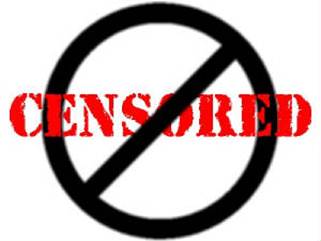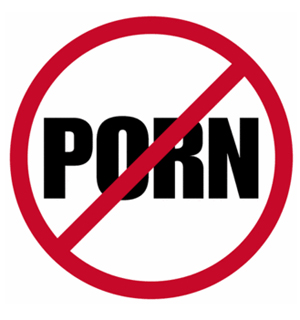The government recently announced proposals
under which ISPs will enable you to ban pornographic sites from web-connected
devices, and launched a website to which you can report inappropriate content.

As long as there’s been an Internet, it’s
been used to disseminate adult material. The web offers a great way to share
information and media for the greater good, but it’s also proved attractive as
a means of accessing darker material. This is something the government is keen
to stop, in order to protect the innocence of children.
In response, lSPs BT, Sky, TalkTalk and
Virgin now say they will offer users the opportunity of banning pornographic
sites from their smartphones, laptops and desktop PCs. But it’s not clear
exactly what this means in real terms, as the web providers all currently offer
packages enabling known pornography sites to be blocked. This Is, of course,
something of a dark art, as not even the most solitary teenager knows where all
the pornographic sites reside on the ‘web. The four ISPs are promising that
parents will be able to block all pornographic sites, forever, however. A
compelling claim.
The announcement came at the same time as
prime minister David Cameron announced a raft of child-protection plans, and
launched the ParentPort.orq/uk website.

Parent Port will offer parents the
opportunity to complain about inappropriate web content. Communications
regulator Ofcom welcomed the website, saying it would make it easier for
parents to report any such material that children may stumble upon.
Cameron also backed a ban on advertising
billboards displaying adult images near schools, and met with industry reps to
discuss an appropriate response to concerns over the sexualisation of children.
Why is it happening?
The government is driving these actions in
response to a Mothers’ Union report that attacked the use of sexualised images
to market products to children. It also cited the use of children to market to
their peers.
Commenting on the report, head of the
Mothers’ Union Re Bailey said UK childhood was now beset by ‘commercialisation
and sexualisation”, on TV and the web.
Responding to Bailey’s report earlier this
year, Cameron said: “We should not try to wrap up children in cotton wool or
simply throw up our hands and accept the world as it is. Instead, we should
look to put the brakes on an unthinking drift towards ever greater
commercialisation and sexualisation.”
At the subsequent industry summit with
Cameron and the ISPs, Bailey demanded that what he refers to as steamy’ pop
videos be restricted to older teenagers on the web, and post-watershed slots on
TV. He also suggested covering up magazines that feature sexualised images on
shop shelves.
What does it really mean?
The government isn’t looking to gain votes
from tech-savvy onlookers. This type of announcement - thin on policy, high on
headlines and gimmicks - is aimed squarely at people for whom the Internet
remains a scarcely understood presence on the outside of their daily lives;
people whose children are much more web-savvy than they are.
It remains to be seen what, if anything,
the government or industry can do to curtail the spread of pornography on the
web. It’s worth bearing in mind that however distasteful it may be, pornography
is not illegal, per se.
It’s virtually impossible to block an
entire genre of websites, unless you completely unhook from the web. Most
parents who have been through this process suggest that education and openness
is the only way to address these concerns. And although ParentPort is - on the
face of it - a great idea, the concept of simply blocking out unwanted material
is a dangerous panacea.
The best advice for worried parents is to
put the computer in a shared living space where you can see what your children
are doing at all times. Talk to them about appropriate use of the web, and
install some parental-control software to restrict and record their usage. And
then cross your fingers and hope for the best.